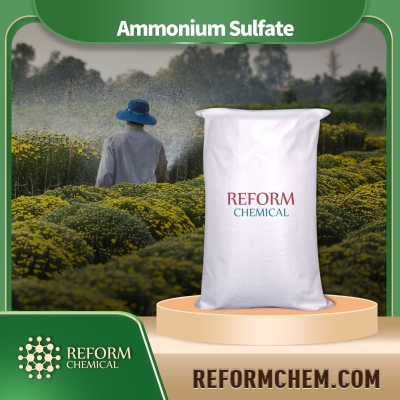-
Categories
-
Pharmaceutical Intermediates
-
Active Pharmaceutical Ingredients
-
Food Additives
- Industrial Coatings
- Agrochemicals
- Dyes and Pigments
- Surfactant
- Flavors and Fragrances
- Chemical Reagents
- Catalyst and Auxiliary
- Natural Products
- Inorganic Chemistry
-
Organic Chemistry
-
Biochemical Engineering
- Analytical Chemistry
-
Cosmetic Ingredient
- Water Treatment Chemical
-
Pharmaceutical Intermediates
Promotion
ECHEMI Mall
Wholesale
Weekly Price
Exhibition
News
-
Trade Service
China is the origin of tea trees and the origin of tea culture
.
The literati in ancient times loved to light a lamp, make a pot of tea, and think about it with a book
.
In modern times, drinking tea is not only a hobby of many people, but also a means of health preservation
.
Both fermented and unfermented tea leaves are rich in tea polyphenols
.
This is an anti-oxidant substance, and a large number of experiments have found that it is also very beneficial to fight cancer and prevent cancer
.
In addition, tea leaves also contain a small amount of caffeine.
Drinking in moderation can have a refreshing effect
.
But there are actually a lot of "bad things" about drinking tea on the Internet
.
Some people say that drinking tea will drink a lot of pesticides, and some people say that drinking tea will affect the absorption of calcium.
Are these true? The nutritionist in the explosive nutrition class will give you a good analysis: 1.
Will you drink a lot of pesticides when drinking tea? There has been a saying on the Internet that more than 90% of tea plants are sprayed with pesticides.
If you drink spring tea, you will be drinking pesticides
.
But in fact, there are no pests when the tea leaves bud in spring, so there is no need to spray medicine at all, otherwise it is a waste of money
.
However, some of the pesticides applied in the summer and autumn of the previous year are likely to remain in the soil
.
And now the pesticide residue detection technology is getting more and more advanced
.
As a result, no pesticides were applied at all, and as a result, pesticide residues were also detected in spring tea
.
So, will the residual pesticide hurt the body? Of course not
.
Because the amount of this kind of residue is often very small, far lower than China's "Pesticide Residue Testing Standard"
.
In addition, generally we only use a few grams of tea every day when we drink tea.
When the tea leaves are brewed, the amount of pesticide residues that can be dissolved in the water is very small, so there is no need to worry about it
.
2.
Drinking tea will affect the absorption of calcium? There is a theory that tea contains oxalic acid, which will react with calcium and affect calcium absorption
.
On the surface, it seems reasonable, but in fact it can't stand scrutiny at all
.
There is indeed oxalic acid in tea, but the content is very low
.
Only 1 to 2 grams of tea is needed to make a cup of tea, of which oxalic acid is no more than 12 mg, and then the tea leaching rate and the amount of free calcium must be considered
.
In the end, the amount of calcium that can be lost to the human body is only a few milligrams at most, so you don't have to worry about it
.
Studies have found that the incidence of osteoporosis among herders who drink strong tea for a long time is 17% higher than that of Zhongyuan people who do not drink strong tea.
The reason is that tea contains more diuretic caffeine, which will promote excessive excretion of urinary calcium.
.
However, this study has long been overturned.
The real cause of osteoporosis among herders is that they usually eat a lot of meat and excessive protein in their diets, which leads to increased urinary calcium excretion
.
In addition, love to drink, love to eat salt, etc.
are also the reasons for their calcium loss
.
.
The literati in ancient times loved to light a lamp, make a pot of tea, and think about it with a book
.
In modern times, drinking tea is not only a hobby of many people, but also a means of health preservation
.
Both fermented and unfermented tea leaves are rich in tea polyphenols
.
This is an anti-oxidant substance, and a large number of experiments have found that it is also very beneficial to fight cancer and prevent cancer
.
In addition, tea leaves also contain a small amount of caffeine.
Drinking in moderation can have a refreshing effect
.
But there are actually a lot of "bad things" about drinking tea on the Internet
.
Some people say that drinking tea will drink a lot of pesticides, and some people say that drinking tea will affect the absorption of calcium.
Are these true? The nutritionist in the explosive nutrition class will give you a good analysis: 1.
Will you drink a lot of pesticides when drinking tea? There has been a saying on the Internet that more than 90% of tea plants are sprayed with pesticides.
If you drink spring tea, you will be drinking pesticides
.
But in fact, there are no pests when the tea leaves bud in spring, so there is no need to spray medicine at all, otherwise it is a waste of money
.
However, some of the pesticides applied in the summer and autumn of the previous year are likely to remain in the soil
.
And now the pesticide residue detection technology is getting more and more advanced
.
As a result, no pesticides were applied at all, and as a result, pesticide residues were also detected in spring tea
.
So, will the residual pesticide hurt the body? Of course not
.
Because the amount of this kind of residue is often very small, far lower than China's "Pesticide Residue Testing Standard"
.
In addition, generally we only use a few grams of tea every day when we drink tea.
When the tea leaves are brewed, the amount of pesticide residues that can be dissolved in the water is very small, so there is no need to worry about it
.
2.
Drinking tea will affect the absorption of calcium? There is a theory that tea contains oxalic acid, which will react with calcium and affect calcium absorption
.
On the surface, it seems reasonable, but in fact it can't stand scrutiny at all
.
There is indeed oxalic acid in tea, but the content is very low
.
Only 1 to 2 grams of tea is needed to make a cup of tea, of which oxalic acid is no more than 12 mg, and then the tea leaching rate and the amount of free calcium must be considered
.
In the end, the amount of calcium that can be lost to the human body is only a few milligrams at most, so you don't have to worry about it
.
Studies have found that the incidence of osteoporosis among herders who drink strong tea for a long time is 17% higher than that of Zhongyuan people who do not drink strong tea.
The reason is that tea contains more diuretic caffeine, which will promote excessive excretion of urinary calcium.
.
However, this study has long been overturned.
The real cause of osteoporosis among herders is that they usually eat a lot of meat and excessive protein in their diets, which leads to increased urinary calcium excretion
.
In addition, love to drink, love to eat salt, etc.
are also the reasons for their calcium loss
.






